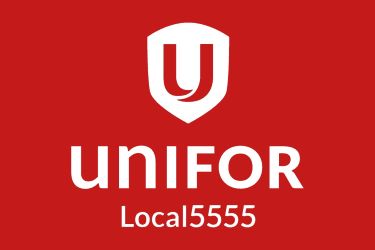McMaster’s Policy and The Charter of Rights and Freedoms:
The Charter of Rights and Freedoms applies to interactions between the government and individuals. McMaster University is not the government. As this is between the employer and its workforce, the Ontario Human Right Code applies.
Is the policy is a constitutional violation?
To reiterate, the Charter does not apply to interactions between an employer and it’s employees. To the extent that many feel it is a violation of personal rights, there have been a number of rulings that have upheld the concept that for the benefit of the ‘greater good’ individual rights can be imposed upon and that reasonable limits may be placed on individual rights.
Is the McMaster Vaccination Policy reasonable and/or enforceable?
The simple answer is yes. The Employer has a legal obligation to take every precaution reasonable in the protection of workers as part of the Ontario Health and Safety Act. Unifor National’s Legal Department has determined that mandatory vaccinations policies in the workplace are reasonable, therefore it is an enforceable workplace policy.
What about accommodations?
If you have a medical reason preventing you from being vaccinated, or a religious prohibition against vaccinations, you can request an accommodation. The University has indicated it will only accommodate those situations, but they will be handled individually as requests are submitted. The University will be providing the documentation that will be necessary to request accommodation.
Can the employer force me to get vaccinated?
In this case, the employer is not forcing you to get vaccinated, however there are ramifications if you choose not to do so. The employer is within its rights to refuse access to the workplace for those who choose not get vaccinated. For many members, as their work can not be done remotely, that will result in them being put on an unpaid Leave of Absence. For those who may be able to work remotely, it will be dependent on whether they are required in the workplace, and that determination is made based on the operational requirements of the department. For clarity, this does not mean that you will/must be offered the option to work from home if you are not vaccinated.
Is this policy a violation of the Ontario Human Rights Code?
The OHRC does prohibit discrimination on the basis of religion, but not all beliefs amount to a ‘creed’ under the code. The link below (question #5) is a very good explanation of this aspect from the OHRC website.
It is worth noting the OHRC answer on this question also notes that the requirement to prove a vaccination may represent a reasonable and bone fide requirement for Health and Safety reasons
Will the Union file a grievance on this policy?
As soon as the local was informed of this policy we started researching cases, held meetings with the University and asked for a legal opinion from Unifor National’s legal department. As we have been informed the policy is reasonable and will withstand a legal challenge, we do not have grounds to file a grievance. There is no violation of the Collective Agreement, other workplace policies, Ontario Health and Safety Act, Ontario Human Rights Code, or any other employment related legislation that could potentially apply.
Who do I contact if I have questions?
Unit 1 (Non-Academic Administrative)
Sarah-Kai Antanaitis, Unit 1 Chairperson
Cell : 905-536-8252
sarah-kai.antanaitis@unifor5555.ca
Unit 2 (RMA), Unit 3 (Parking Operations) Unit 4 (Special Constables)
Beth Couchman, President
Cell: 905-537-1092
Unit 5 (Facility Services)
Emily Heikoop, Vice-President
Cell: 226-208-0890

